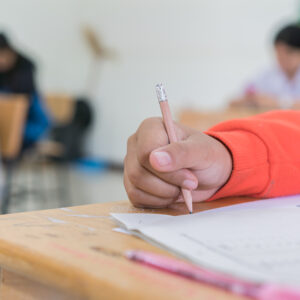This last year has certainly been a wild ride. No one will soon – if ever – forget how they navigated through the pandemic of 2020-2021. While the cases of late have increased, they are well below our peak rates, the vaccine roll-out is strong, schools and businesses are returning to “more normal” operations. And, spring is here with the promise of warm summer days to follow.
The urge to return to some sort of normalcy is strong and a natural reaction to the circumstances we have been living under for the last year. But whenever there is a significant disruption, such as a pandemic, that is also a place for change and growth.
In the business world, such inflection points are viewed as real opportunities. In Corporate Finance Institute comments by Andy Grove, the former CEO of Intel Corporation, he described inflection points as any major change taking place in a competitive environment. As a change in trajectory, an inflection point can be an opportunity to reach further growth. Entrepreneur magazine states, “Failure to change at these points may cause [a] business to lose momentum.”
Many people do not like to think about education in business terms, but education certainly is at an inflection point. The pandemic forced all of us out of our comfort zone. We learned many things that worked, as well as a number of things that did not work. The pull to simply return to what we were doing pre-pandemic is strong. To do so would be to miss an opportunity.
While there are many positive aspects of our education system pre-pandemic, it should not be idolized simply because of our dissatisfaction with pandemic learning. Before the pandemic, we struggled with a system in which economically disadvantaged and minority students were falling further behind. The pandemic has revealed and likely exacerbated the very real student mental health and suicide risks, but even before the pandemic, we had a teen suicide crisis with dramatically increasing rates. The same holds true for substance misuse among young people.
To take advantage of this current inflection point, we will need to be creative. New Hampshire education laws already provide a tremendous amount of flexibility to our school districts to be creative in how they meet student needs. The legislature has a bill moving through the process now to allow schools to create “innovation zones” to help them work through laws or rules that they believe hold them back from best serving their students. On top of that, schools have received over $650 million of federal COVID-19 response aid. All of the tools are in place. And the opportunity is now.
In a recent discussion with a school board member, I shared an example of one such creative idea.
As a competency-based system, New Hampshire students are supposed to advance their studies based on the demonstration of mastery over a content area, not based on “seat-time” in school. New Hampshire schools on the other hand are required to offer students 180-days of instruction each year. What if, rather than a sequential 180-day school year, we offered a sequential 165-day school year and three 5-day learning interventions over the summer. Students who mastered the course material with a B grade or above, could be finished in 165 days. Students needing extra help – a C or below – would come in over the summer for one or more interventions, in a setting with fewer students and more personalized instruction to help them fill in the areas where they were not successful.
One of our schools offered a similar incentive to students for the statewide academic assessment one year. Students who ranked proficient on the statewide science assessment were exempt and did not have to take the Chemistry final exam. That year, the school saw a 20 percent performance increase in student proficiency on the statewide assessment.
New Hampshire has a history and a legacy of innovation in education. For decades we have been leaders across the country. The pandemic has created a potentially once-in-a-lifetime opportunity to advance education innovation.
This pandemic gave us all a bunch of lemons. Anyone interested in making lemonade?




